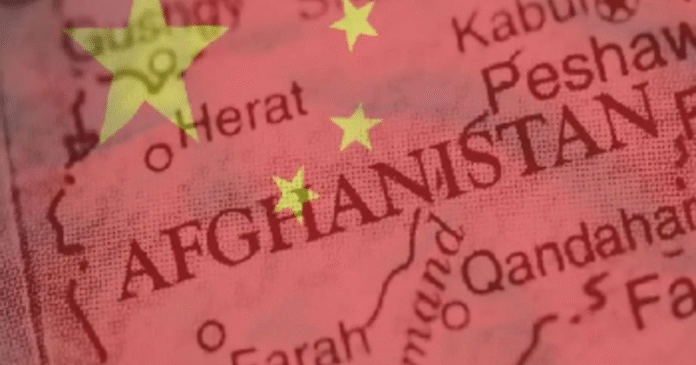By Dr Nooralhaq Nasimi MBE (HonDSS Rhul), Founder and CEO, Afghanistan and Central Asian Association (ACAA)
In a landmark development, on October 9, New Delhi is set to host Taliban Foreign Minister Amir Khan Muttaqi – the first high-level visit since the Taliban seized power in August 2021. The timing is no coincidence. It arrives against the backdrop of Russia formally recognising the Taliban and China signalling its growing engagement, moves that are reshaping regional power dynamics and diminishing India’s traditional influence in Afghanistan.
In July this year, Russia became the first country to formally recognise the Taliban since its return to power in 2021, removing the de-facto authority from its list of terrorist organisations. This recognition, far from a diplomatic whim, built on a calculated trajectory, from keeping its embassy open in Kabul after the U.S. withdrawal, to signing oil, gas, and wheat deals in 2022, and steadily cultivating ties with Taliban leaders.
Speculation was already mounting that Moscow’s move could set off a domino effect, prompting other regional powers to follow suit and Beijing appears first in line. China swiftly welcomed Russia’s decision. Foreign Ministry spokesperson Mao Ning’s remark that “Afghanistan should not be excluded from the international community” was more than diplomatic courtesy; it signalled a clear strategic intent.
Beijing has its eyes on Afghanistan’s mineral wealth, strategic geography, and the security buffer it provides against extremist threats to Xinjiang. Should China formally recognise the Taliban, it would cement a Beijing–Moscow–Islamabad–Kabul axis — one that could marginalise India from emerging economic and security frameworks across the region.
In this scenario, New Delhi faces a double bind. On one hand, Russia’s recognition of the Taliban and China’s growing engagement threaten to sideline India from regional connectivity projects and security arrangements. Taliban–Pakistan cooperation under Russian and Chinese diplomatic cover could also embolden anti-India militant groups with safe havens in Afghanistan. On the other hand, by hosting Muttaqi, India risks compromising its moral authority and appearing to prioritise realpolitik over human rights and democratic principles.
If India wants to safeguard its regional influence and prevent extremist threats from taking deeper root, it’s true that it cannot afford to be a bystander.
However, there are key steps that it must take so as not to legitimise the de-facto authority. For instance, while continuing to extend humanitarian assistance to Afghanistan, it can partner with NGOs on the ground and trusted international organisations. India can also provide university scholarships to Afghan women and girls in exile, and fund online learning platforms and digital classrooms to circumvent Taliban restrictions — a role uniquely suited to India as one of the world’s leading IT nations.
Strategically, India must keep human rights at the centre of any engagement with Kabul and support a political alternative to the Taliban. For the past 5 years or so, as the founder and director of the Afghanistan and Central Asian Association (a charity in London), I have been advocating for an organised political opposition to the Taliban. Such an opposition, whether in exile or operating within Afghanistan, could provide an alternative vision grounded in democratic principles and human rights.
One example is the Afghanistan Government in Exile (AGiE), founded by Darius Nasimi – Head of Funding and Partnerships at the Afghanistan and Central Asian Association (ACAA). AGiE is an inclusive coalition advocating for human rights, democracy, and stability for Afghanistan, with the potential to serve as a vital counterbalance to the Taliban, ensuring they are not seen as the sole voice of the Afghan people on the global stage.
The plight of ordinary Afghans is already desperate. Thousands have been deported from Pakistan and Iran to a land where the Taliban can neither protect nor provide for them. Two-thirds of the population inside Afghanistan are already in need of aid but budgets are overstretched, health services are crumbling, and humanitarian funding has plummeted due to global donor fatigue, US aid freezes, and shifting international priorities. Deported Afghans are facing arrest, torture, and even execution. Women and girls, barred from education, work, and free movement, are being sent back to lives stripped of rights.
To make matters worse, the UK has announced closure of ARAP and ACRS – the only two legal routes for resettlement of Afghans who worked with NATO or British forces and are fleeing Taliban persecution. Following the UK Ministry of Defence data breach, many others whose details have been leaked also remain at risk. The Afghanistan and Central Asian Association (ACAA), in response, has begun preliminary legal proceedings against the UK government to challenge the closure of ARAP through a judicial review.
At a time when the world seems ready to forget the suffering of ordinary Afghans, India has a chance to lead this right, to give the Afghan people a democratic voice and keep their struggle for human rights alive.




